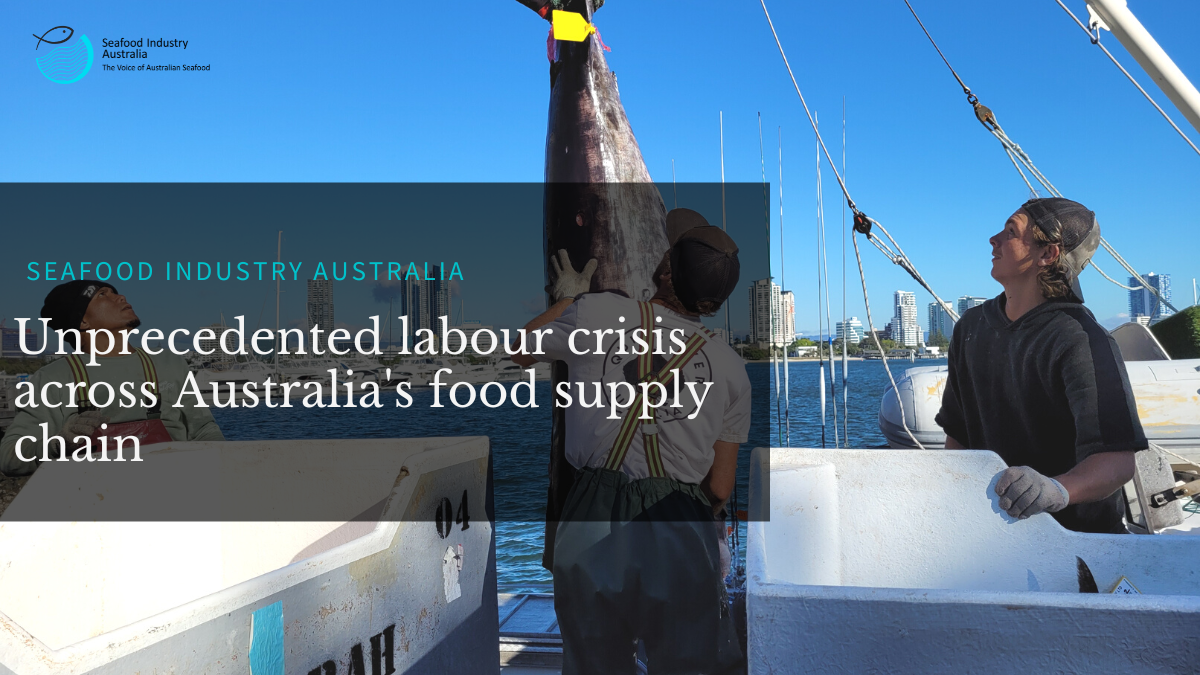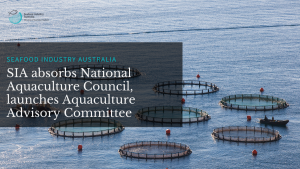172,000 WORKERS NEEDED SAY PEAK FOOD INDUSTRY BODIES OR PROLONGED HIGHER FOOD PRICES FOR CONSUMERS AND REDUCED FOOD AVAILABILITY WILL CONTINUE THROUGHOUT 2022 AND BEYOND
Call for federal government to prioritise food sector in upcoming Jobs and Skills Summit
Australia’s top peak food industry bodies have calculated the food supply chain is short at least 172,000 workers from paddock to plate. This massive labour shortage will have significant long-term impacts on price and the availability of food for the consumer unless solutions are found quickly.
According to the peak bodies, which have recently collaborated to form the Food Supply Chain Alliance, this is one of the few ‘cost of living’ pressures the Government can influence. The Alliance believes the food sector, given it provides an essential service to the community, must be a priority at the upcoming Jobs and Skills Summit, which must deliver viable solutions to be considered a success.
The ‘Food Supply Chain Alliance’ represents over 160,000 businesses with a revenue of over $200 billion. It includes the National Farmers Federation, the Australian Meat Industry Council, Seafood Industry Australia, Independent Food Distributors Australia, AUSVEG, Master Grocers Australia, Restaurant and Catering Industry Association and the Australian Association of Convenience Stores.
The Alliance says there are steps the government can take now to relieve the pressure on food industries and consumers. The food supply chain urgently requires a suite of tools, including suitable visa pathways to welcome overseas workers, as well as measures to facilitate people in the country to take up the work (i.e. lifting restrictions on work rights for temporary migrants and seniors, and support to enable relocation to do the work).
The Alliance believes the government must, as a matter of urgency, develop a National Food Supply Chain Strategy to reduce the impact of both natural disasters and future global challenges.
CEO quotes on the impact of labour shortages on their respective industries:
CEO of the National Farmers Federation, Tony Mahar – “The farm sector’s labour crisis is not only
hurting farmers it’s hurting the economy and it’s hitting consumers in the hip pocket. Farmers are
making the difficult choice not to plant some crops, because they can’t guarantee they’ll have
workers for harvest. If crops don’t get planted, less food gets grown, and people pay more. It’s a
simple equation. We need appropriate visa solutions to attract workers and ensure they’re treated
fairly.”
CEO of AUSVEG, Michael Coote – “Australia’s $15 billion horticulture industry is currently
experiencing a labour shortage of approximately 10,000 individual workers, which equates to many
more roles as workers follow the harvest trail for seasonal work. The demand for workers increases
significantly from winter to summer as production ramps up leading into the summer harvest period.
Without immediate action, the compounding effect of this labour shortage, coupled with adverse
weather conditions and rising farm input costs, will likely result in periods with higher prices for
consumers and a higher likelihood of gaps in availability of some crops over the next 12 months.”
CEO of Seafood Industry Australia, Veronica Papacosta – “The Australian seafood industry
continues to face labour shortages across the wild-catch, aquaculture, and processing sectors. The
current labour shortage is impacting 48% of our businesses; meaning boats are tied up at docks
because we cannot achieve minimum crewing levels, seafood processors and retailers cannot find
staff to operate their businesses, and the impacts in our aquaculture facilities will be felt for years to
come. Like all proteins and produce, a reduced supply of seafood into stores puts pressure on the
cost of the family meal. This is something we never want to see.”
CEO of the Australian Meat Industry Council, Patrick Hutchinson – “The post-farmgate meat supply
chain is already under-resourced to process the number of livestock forecast to be produced in
Australia in 2022. Forecasts for 2023-2025 can be anything between a 15-35% increase in
livestock numbers. This will obviously be catastrophic for Australian farmers if the volume of
livestock is far greater than the meat processing industry can process, and the wider supply chain
has the ability to manage.”
CEO of Independent Food Distributors Australia, Richard Forbes – “The ability to transport food is
becoming harder by the day due the significant shortages of truck drivers across the country.
Coupled with that is an ongoing lack of skilled and unskilled workers in food warehouses to help
pack and store food products and drive forklifts to unload trucks from suppliers and load them for
food retail outlets. Recruiting and maintaining staff is almost impossible.”
CEO of Master Grocers Australia, Jos De Bruin – “Independent Food and Grocery supermarkets have
never before experienced worker shortages as we have seen in the past 12 months. The situation is
diabolical as members struggle with increased costs of doing business coupled with insufficient staff
to help run their stores. Our industry sector has traditionally relied upon local workers in the first
instance and then new migrant workers, temporary visa holders and backpackers to work in their
stores. MGA strongly encourages the Government to allow older workers currently not wishing to
risk their pension payments, to work in our members stores as well as simplifying Temporary Visa
conditions to allow temporary visa holders to work longer hours, extend their visa and apply for
permanent residency.”
CEO of the Restaurant and Catering Industry Association, Belinda Clark – “The Hospitality industry
is a $57 billion market. Restaurants, cafés and Caterers are currently looking at a shortfall of 100,000
jobs across the country. The heartbreak of having to shut their doors due to COVID-19, losing their
staff or even having to close the business for good has taken its toll on everyone. And we’re still not
out of the woods. Input costs have risen considerably in all areas, this perfect storm will mean that
prices will have to rise just for businesses to make ends meet and customers will start to see their
favourite items on the menu start to disappear. Times have never been tougher and the public and
industry need to come together to get through this. We desperately need a solution.”
CEO of the Australian Association of Convenience Stores, Theo Foukarre – “The Petrol &
convenience channel has never experienced such dire workforce shortages, currently seeking over
15,000 staff nationally. The industry relies heavily on overseas migration from international students
and working holiday travellers however they just have not come back in the numbers that the
government expected them to. Our member businesses are stretched to the absolute maximum
trying to just operate their retail stores with limited labour whilst also having to increase staff wages
simply to retain their staff – the impact on the bottom line is endless. These pressures combined
with the exploding cost of doing business is already seeing a rise in shelf prices of food and grocery,
in some categories up to 15% higher.”
<ENDS>
FIA Contact: Richard Forbes, CEO Independent Food Distributors Australia – 0427 270 687
For more information or to organise an interview with SIA CEO Veronica Papacosta please contact SIA communications and public affairs manager Jessica McInerney on jessica@463.9af.myftpupload.com or 0420 695 431.







